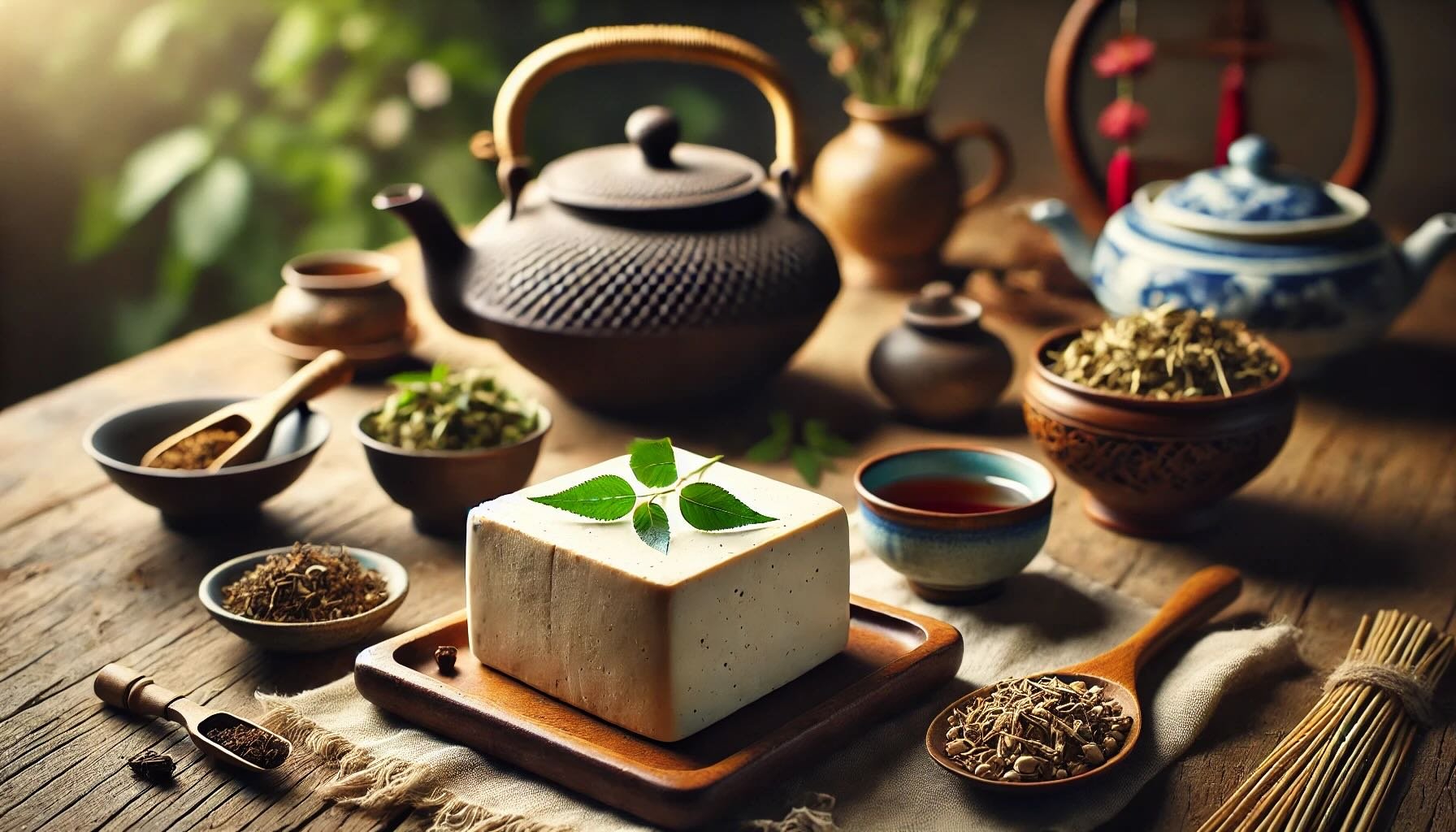Tofu in Traditional Medicine: A Timeless Health Ally
Tofu has long been praised for its versatility, affordability, and high protein content. Beyond its culinary appeal, tofu holds a prominent position in the annals of traditional medicine, particularly in traditional Chinese medicine (TCM). From aiding digestion and balancing bodily energies to modern health applications, tofu’s journey in holistic care is both intriguing and deeply rooted in history.
1. Historical Roots in Traditional Chinese Medicine
Early Mentions:
The origins of tofu are attributed to China’s Han Dynasty (around 2,000 years ago), making it one of the oldest plant-based foods still widely consumed today. Early medical texts highlight soybeans as nutrient-rich, suggesting that the curdled form (tofu) also inherited these benefits.
Balancing Qi and Cooling Properties:
In TCM, foods are often classified by their ability to heat or cool the body and balance the flow of energy, or “qi.” Tofu is traditionally considered to have cooling properties, helping to reduce excess heat within the body. Practitioners often recommend it to patients dealing with inflammation, fevers, and other heat-related conditions.
Digestive Support:
Historically, tofu was believed to assist the spleen and stomach in processing nutrients. By supporting the digestive system, it was thought to help the body more efficiently absorb vitamins and minerals, promoting overall vitality. This idea remains relevant today, with many nutritionists citing tofu’s easily digestible nature and protein density.
2. Key Nutritional Components
Modern research confirms several properties that TCM has long embraced:
High-Quality Protein: Tofu contains all nine essential amino acids, making it a complete protein source. This quality aligns perfectly with TCM’s emphasis on strengthening qi through balanced nutrition.
Rich in Minerals: Calcium, magnesium, and phosphorus found in tofu support bone health and muscle function, reflecting TCM’s belief in supporting the body’s foundational structures.
Low in Calories, High in Nutrients: Its nutrient-to-calorie ratio makes tofu an optimal choice for overall wellness, aligning with TCM’s principle of nourishment without excess.
3. Modern Health Applications
Thanks to scientific advancements, tofu’s role in modern medicine complements its historical significance:
Heart Health:
Tofu contains unsaturated fats and zero cholesterol, supporting heart health. Replacing higher-cholesterol foods with tofu can help regulate blood pressure and reduce the risk of cardiovascular issues.Hormonal Balance:
Isoflavones in tofu are structurally similar to estrogen, which can be beneficial for some individuals—particularly women experiencing menopause. By offering a plant-based way to address hormonal fluctuations, tofu presents a modern twist on age-old TCM practices.Weight Management:
With high protein and low calories, tofu satiates hunger without contributing excess fats or sugars. This parallels TCM’s holistic approach to maintaining a balanced lifestyle that includes mindful eating, hydration, and adequate rest.Adaptable in Diets:
Modern health trends favour plant-based diets for their numerous benefits, from reducing the risk of chronic diseases to lowering environmental impact. Tofu fits seamlessly into vegetarian, vegan, and flexitarian lifestyles, matching TCM’s age-old emphasis on harmony and moderation in the body and the broader environment.
4. Continuing the Tofu Tradition in Everyday Wellness
Pairing Tofu with Herbs and Spices:
A classic TCM approach is to combine tofu with specific herbs or spices that can amplify its cooling or warming effects. For instance, ginger can add gentle warmth and assist digestion, while turmeric offers anti-inflammatory properties, complementing tofu’s cooling element.
Mindful Cooking Techniques:
Whether you steam, stir-fry, or bake tofu, the method influences how the body processes its nutrients. Steaming tofu is considered gentle on digestion while stir-frying with vegetables can boost synergy among flavours and nutrient absorption—echoing TCM’s focus on harmony.
Conscious Consumption:
TCM also teaches respect for food sources, advocating ethical and sustainable practices. Opting for organic and non-GMO tofu can help ensure that you’re not only reaping the health benefits but also protecting the environment and supporting responsible farming practices.
Conclusion
From ancient prescriptions in Traditional Chinese Medicine to modern scientific findings, tofu’s legacy is as much about healing as it is about nourishment. Its longstanding reputation for supporting digestion, balancing energies, and delivering essential nutrients has seamlessly transitioned into contemporary health recommendations. Tofu remains a testament to the enduring wisdom of holistic traditions and the benefits of integrating time-honoured remedies into our fast-paced, modern world.
By understanding tofu’s historical roots and embracing its modern-day potential, you can enrich your health journey—merging tradition, science, and mindful eating in one delicious package.

